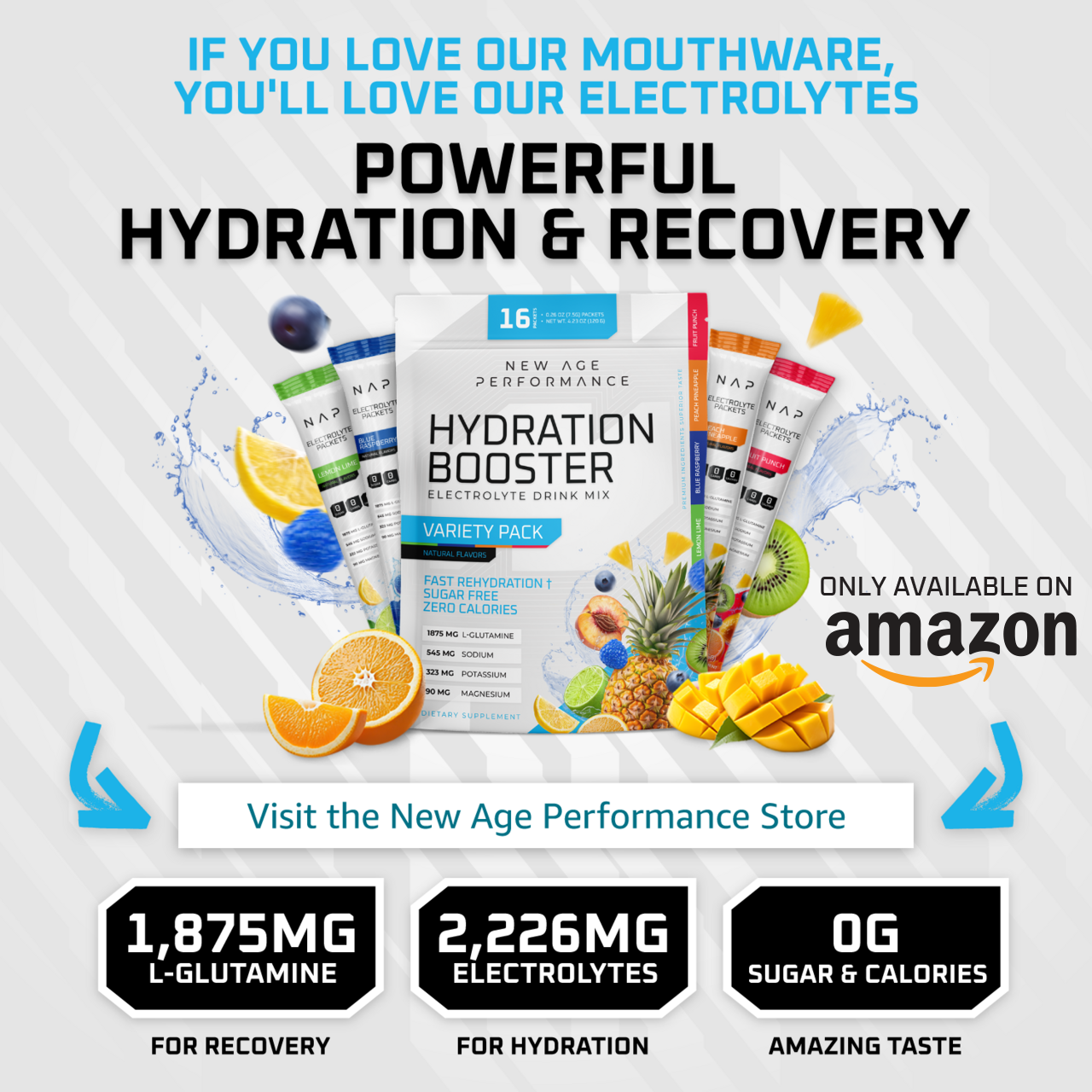Hydration is one of the most critical yet often overlooked factors in athletic performance. Whether you're a weightlifter, runner, CrossFit athlete, or combat sports competitor, proper hydration can make or break your performance. Dehydration can lead to decreased strength, endurance, cognitive function, and even increase the risk of injuries.
In this blog, we'll dive into the importance of hydration for athletes, how it impacts performance, recovery, and endurance, and provide practical strategies to optimize hydration for maximum results.
1. The Science of Hydration in the Human Body
Water makes up approximately 60% of the human body, playing a crucial role in various physiological processes, including:
- Regulating body temperature
- Transporting nutrients and oxygen
- Lubricating joints
- Eliminating waste through sweat and urine
- Supporting cardiovascular health
When an athlete engages in physical activity, the body loses fluids through sweat. This loss needs to be replenished to maintain optimal function. Even a small degree of dehydration (as little as 2% of body weight) can negatively impact strength, endurance, and cognitive function.
2. Hydration and Athletic Performance
How Dehydration Affects Strength and Power
For strength athletes like powerlifters and weightlifters, dehydration can significantly impact:
✅ Muscle contractions – Water is essential for muscle cells to function properly. Dehydration leads to reduced muscle strength and endurance.
✅ Blood flow – When you’re dehydrated, your blood volume decreases, making it harder for your heart to pump oxygen to muscles efficiently.
✅ Fatigue and cramping – Dehydration increases the likelihood of early fatigue and muscle cramps, which can hinder workout performance.
💡 Solution: Aim to drink 16–24 oz (500–700 mL) of water 1–2 hours before strength training and sip on electrolyte-enhanced water during workouts to maintain performance.
How Dehydration Affects Endurance Athletes
For runners, cyclists, and HIIT athletes, hydration is even more critical. The longer and more intense your workout, the more fluid you lose. Dehydration in endurance athletes can lead to:
❌ Reduced oxygen delivery to muscles
❌ Increased heart rate and body temperature
❌ Faster glycogen depletion, leading to early fatigue
❌ Dizziness, nausea, and heat exhaustion
💡 Solution: Drink 17–20 oz (500–600 mL) of water 2 hours before an endurance workout and 8–10 oz (240–300 mL) every 15 minutes during the session.
3. Hydration and Recovery
How Proper Hydration Speeds Up Muscle Recovery
Post-workout recovery is just as important as the workout itself. Hydration plays a critical role in:
✅ Flushing out metabolic waste – After intense exercise, waste products like lactic acid accumulate in the muscles. Proper hydration helps remove these toxins and reduces soreness.
✅ Muscle repair and protein synthesis – Dehydration slows down the delivery of nutrients needed for muscle recovery, including protein and amino acids.
✅ Reducing inflammation – Staying hydrated helps keep inflammation levels in check, minimizing post-workout soreness and stiffness.
💡 Solution: After workouts, rehydrate with a mix of water, electrolytes, and L-glutamine (which supports muscle recovery and hydration).
Electrolytes and Their Role in Recovery
Electrolytes are minerals like sodium, potassium, magnesium, and calcium that regulate fluid balance and muscle contractions. Sweating depletes electrolytes, leading to fatigue and cramping.
The best way to replenish electrolytes:
✔ Drink electrolyte-enhanced water or sports drinks
✔ Eat foods rich in potassium (bananas, sweet potatoes, avocados)
✔ Supplement with hydration powders that include L-glutamine for faster muscle repair
4. Hydration and Endurance
How Hydration Impacts Stamina and Longevity in Training
Endurance isn’t just about cardiovascular health—it’s about maintaining energy and power output over time. Proper hydration helps:
🔥 Prevent overheating – Dehydration makes it harder for your body to cool down, leading to exhaustion.
🔥 Maintain electrolyte balance – Electrolyte depletion causes muscle cramps and fatigue, forcing athletes to stop prematurely.
🔥 Preserve glycogen stores – Water is essential for proper carbohydrate metabolism, which fuels endurance workouts.
💡 Solution: Start workouts well-hydrated and drink small amounts consistently to maintain endurance.
How Much Water Should Athletes Drink Daily?
A general guideline is:
- Sedentary adults: 2.7 liters (91 oz) for women, 3.7 liters (125 oz) for men
- Athletes: Up to 4–6 liters (135–200 oz) daily, depending on sweat loss and workout intensity
💡 Tip: Monitor urine color—pale yellow indicates proper hydration, while dark yellow suggests dehydration.
5. Best Hydration Strategies for Athletes
Pre-Workout Hydration
✔ Drink 16–24 oz (500–700 mL) of water 1–2 hours before training
✔ Consume electrolytes if training exceeds 60 minutes
✔ Eat hydrating foods like watermelon, cucumbers, and oranges
During Workout Hydration
✔ Drink 8–10 oz (240–300 mL) of water every 15–20 minutes
✔ Use an electrolyte mix if sweating excessively
✔ Avoid sugary or caffeinated drinks, as they can cause dehydration
Post-Workout Hydration
✔ Replenish lost fluids with 24–32 oz (700–1000 mL) of water
✔ Consume sodium and potassium-rich foods
✔ Consider L-glutamine supplements for hydration and recovery
6. Common Hydration Myths and Mistakes
🚫 Myth 1: You Only Need Water to Stay Hydrated – Athletes need electrolytes for proper hydration.
🚫 Myth 2: Thirst is the Best Indicator of Hydration – By the time you’re thirsty, you’re already dehydrated!
🚫 Myth 3: Drinking Too Much Water is Always Good – Overhydration (hyponatremia) can dilute sodium levels and be dangerous. Balance is key.
Conclusion: Prioritize Hydration for Maximum Performance
Staying hydrated is one of the easiest and most effective ways to boost athletic performance, improve endurance, and speed up recovery. By incorporating proper hydration strategies—drinking enough water, replenishing electrolytes, and using supplements like L-glutamine—athletes can maximize their potential and avoid dehydration-related setbacks.
💡 Key Takeaways:
✔ Drink plenty of water before, during, and after workouts
✔ Include electrolytes in your hydration routine
✔ Watch for signs of dehydration and adjust accordingly
✔ Hydration = Better Performance, Faster Recovery, and More Endurance
🔥 Ready to take your hydration to the next level? Try New Age Performance Electrolytes—zero carbs, no salty taste, and packed with muscle-recovery essentials like L-glutamine. Your body will thank you!

